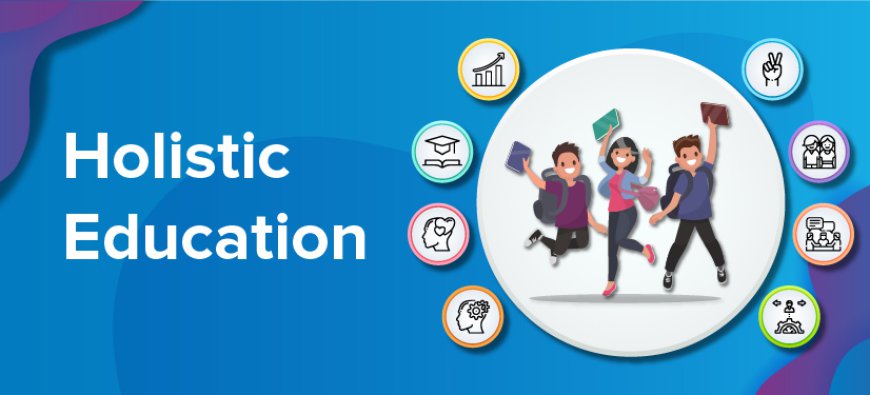Education plays a pivotal role in shaping the future of individuals and society. While academic excellence is important, it is equally crucial to nurture the holistic development of students—addressing their physical, mental, and spiritual well-being. Holistic education in Indian schools focuses on nurturing the mind, body, and spirit of students, promoting a balanced and comprehensive approach to learning. This article delves into the significance of holistic education, highlighting its key components, benefits, and the transformative impact it has on students.

1. The Mind: Fostering Intellectual Growth
Holistic education recognizes the importance of intellectual growth and critical thinking. It encourages students to explore a wide range of subjects, develop analytical skills, and embrace a lifelong love for learning. Through engaging teaching methods, interactive discussions, and hands-on experiences, students are inspired to think creatively, solve problems, and develop a thirst for knowledge. By nurturing the mind, holistic education equips students with the cognitive tools necessary to navigate an ever-evolving world.
2. The Body: Promoting Physical Well-being
Physical well-being is a fundamental aspect of holistic education. Schools prioritize physical education, sports, and fitness activities to ensure students maintain a healthy lifestyle. Physical education classes not only improve physical fitness but also teach students the value of discipline, teamwork, and perseverance. By encouraging regular exercise, healthy eating habits, and mindfulness practices, holistic education empowers students to lead balanced lives and establish a strong foundation for their overall well-being.
3. The Spirit: Cultivating Values and Ethics
Holistic education recognizes the importance of nurturing the spirit of students by instilling values, ethics, and moral principles. It emphasizes the development of character, empathy, and social responsibility. Through value-based education, mindfulness practices, and community service initiatives, students learn to cultivate compassion, respect, and a sense of purpose. The aims to shape individuals who contribute positively to society and make ethical decisions guided by integrity and empathy.
4. Emotional Intelligence: Fostering Social and Emotional Skills
Emotional intelligence is an integral part of holistic education. Schools provide opportunities for students to develop self-awareness, emotional regulation, empathy, and effective communication skills. By fostering a supportive and inclusive environment, education encourages students to express their emotions, develop healthy relationships, and handle conflicts constructively. Emotional intelligence equips students with the tools to navigate challenges, build resilience, and maintain positive mental health.
Read more:
The Future of Learning: Embracing Online Education in India
5. Integrated Learning: Connecting Subjects and Real-World Applications
Holistic education promotes integrated learning, connecting different subjects and encouraging students to apply their knowledge in real-world contexts. By integrating various disciplines, students gain a holistic understanding of complex issues and develop interdisciplinary thinking skills. This approach fosters creativity, problem-solving abilities, and a deeper appreciation for the interconnectedness of knowledge. It prepares students to face real-world challenges with a comprehensive and multidimensional approach.
6. Lifelong Learning and Personal Growth
Holistic education instills a love for learning that extends beyond academic achievements. It nurtures curiosity, self-motivation, and a growth mindset. By encouraging students to set goals, pursue personal interests, and engage in lifelong learning, holistic education ensures that education becomes a lifelong journey. It empowers students to adapt to change, embrace new opportunities, and continuously evolve as individuals.
Conclusion
Holistic education is a transformative approach that nurtures the mind, body, and spirit of students in Indian schools. By fostering intellectual growth, promoting physical well-being, cultivating values and ethics, developing emotional intelligence, encouraging integrated learning, and fostering a love for lifelong learning, its prepares students to lead fulfilling lives and make meaningful contributions to society. Let us embrace holistic education as a powerful catalyst for development, enabling students to thrive academically, emotionally, and spiritually in an ever-changing world.
Follows Us for More Updates
Like Us on Facebook Page :
Click Here
Like Us on Instagram :
Click Here 






























